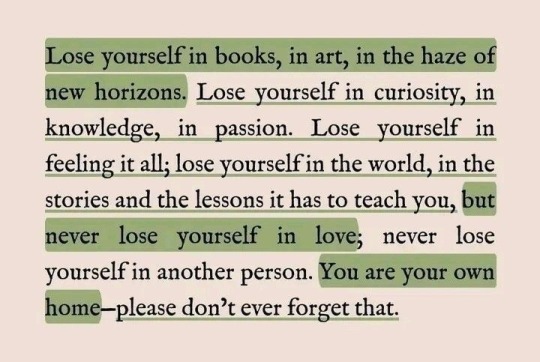Text
"Life has ended for me. How can you stand here beside me and pretend not to remember? Not to know that my heart is breaking for you? That your face is the wonderful light burning in all this darkness?"
— Wuthering Heights, 1939 film
54 notes
·
View notes
Text
"Cathy’s appearance in the novel serves as the second half of the story—the part of the story often forgotten in public memory and eulogization of Brontë’s great novel. Cathy is not only the fulfillment of Heathcliff’s dark desire to be haunted, she is also the antidote to the original sin of Wuthering Heights: the lack of compassion and forgiveness exhibited between Catherine and Heathcliff, between Heathcliff and Hindley, between all the individuals who couldn’t manifest that compassion and forgiveness when most needed.
But Cathy is no saint at the beginning of her storyline (and rightly so, for it makes her transfiguration all the more potent and memorable, indeed, admirable). Again, Emily Brontë’s genius is in Cathy’s free choice to...embrace the feminine mystique of compassion, mercy, and love that has been absent in the dark toxic world of Wuthering Heights since Heathcliff’s presence.
[...] Cathy becomes a teacher for Hareton. She helps him in his education. The two do fall in love with each other—a love that was the outgrowth of Cathy’s feminine compassion and mercy which breaks Heathcliff’s heart of stone.
Under the vindicative gaze of Heathcliff, Cathy exhibits her love in a world bereft of love, Heathcliff’s gaze over the love between Cathy and Hareton makes him realize of the love he missed with Catherine because of his inability to forgive. Heathcliff still can’t forgive. So he dies. But his death ends the dark curse that had ensnared Wuthering Heights which allows Cathy to escape the miserable shadow of Heathcliff which inhibited her total transfiguration."
Libidinal Heights: Love, Lust, and Redemption in Emily Brontë’s Wuthering Heights
111 notes
·
View notes
Text
I've dreamt in my life dreams that have stayed with me ever after, and changed my ideas; they've gone through and through me, like wine through water, and altered the colour of my mind.
—Emily Brontë, Wuthering Heights
206 notes
·
View notes
Text
“If you ever looked at me once with what I know is in you, I would be your slave.”
— Emily Brontë
48 notes
·
View notes
Text
I love the ground under his feet, and the air over his head, and everything he touches, and every word he says – I love all his looks, and all his actions, and him entirely, and altogether.
Emily Brontë, from ��Wuthering Heights’
1K notes
·
View notes
Text
"You said I killed you— haunt me, then! Be with me always — take any form— drive me mad! Only do not leave me in this abyss, where I cannot find you!"
Emily Brontë, from, "Wuthering Heights," originally published in 1847
307 notes
·
View notes
Text
“I wish I were a girl again, half savage and hardy, and free; and laughing at injuries, not maddening under them! Why am I so changed? why does my blood rush into a hell of tumult at a few words? I’m sure I should be myself were I once among the heather on those hills.”
— Emily Brontë, Wuthering Heights
2K notes
·
View notes
Text
She burned too bright for this world.
Emily Bronte, Wuthering Heights
357 notes
·
View notes
Text
He’s more myself than I am. Whatever our souls are made of, his and mine are the same.
Emily Brontë / Wuthering Heights
2K notes
·
View notes
Text
He wanted all to lie in an ecstasy of peace; I wanted all to sparkle and dance in a glorious jubilee. I said his heaven would be only half alive; and he said mine would be drunk: I said I should fall asleep in his; and he said he could not breathe in mine.
—Emily Brontë, Wuthering Heights
602 notes
·
View notes
Text
What will become of you in the rage of this passion without an end?
Johann Wolfgang von Goethe, from ‘The Sorrows of Young Werther’, tr. David Constantine
732 notes
·
View notes
Text



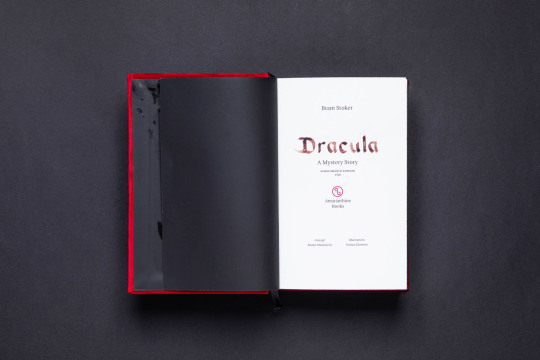
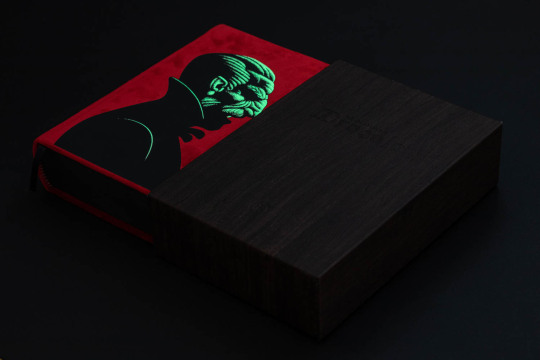
Bram Stoker's Dracula, published in special edition by Amaranthine Books, featuring carved wooden slipcase, real Transylvanian soil behind the small plexiglass window, glow-in-the-dark illustrations, and the title written in real blood of the creatives that worked on this book. (x)
2K notes
·
View notes
Photo

old books in glass cases - protected from mis-handling
13K notes
·
View notes
Text
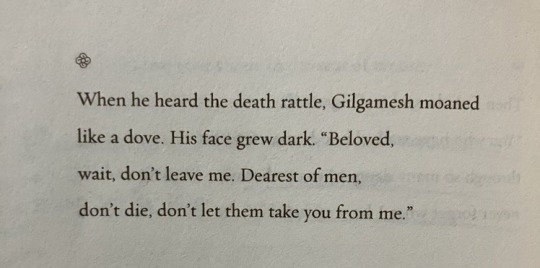
this is going to have me on my hands and knees dry heaving
102K notes
·
View notes
Text
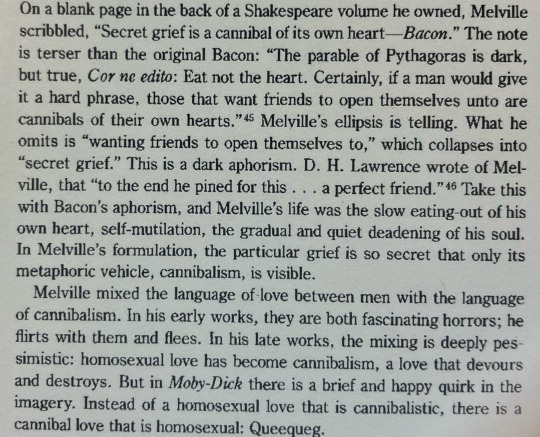
Lovers of Human Flesh: Homosexuality and Cannibalism in Melville’s Novels [Caleb Crain, American Literature, 1994]
2K notes
·
View notes
Text
If the silk-worm's object in spinning were to prolong its existence as caterpillar, it would be a perfect example of a wage-worker
Karl Marx, Wage Labour and Capital
3 notes
·
View notes
